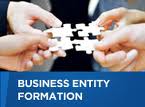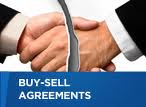When a business is an employer that owes contributions, interest, or penalties to the California Employment Development Department (EDD), the buyer of the business can be responsible for paying the EDD the amount owing if the seller does not pay them.
By the way, the statute applies to any person who “acquires” the business (or substantially all the assets of an employer), not just a buyer. This post assumes that the seller is an employer and that the acquirer is a buyer of assets.
Under the law, unless the seller produces a certificate from the EDD stating that no contributions, interest, or penalties are due, the buyer must withhold in trust money sufficient to cover the amount of any contributions, interest, and penalties owing by the seller and pay the EDD that amount at the closing. If the buyer fails to do that, the buyer will be personally liable to the EDD for the payment of the contributions, interest, and penalties due from the seller. These obligations are imposed on the buyer by Unemployment Insurance Code sections 1731 and 1733.
The buyer’s liability is limited to the purchase price of the assets acquired. Thus, if a seller’s liability to the EDD is $100,000 and the business is sold in an arm’s-length transaction for $12,000, the buyer is only liable to the EDD for $12,000. But that’s $12,000 more than the buyer was expecting!
How to avoid this pitfall? Either the buyer or the seller can submit a written request to the EDD for a Certificate of Release of Buyer (DE 2220). The request is made on Form DE 2220R (Release of Buyer Request Form). The certificate is customarily referred to as a “tax clearance certificate.”
The EDD has 30 days to issue a certificate stating that no contributions, interest, or penalties are due or a statement showing the amount of any contributions, interest, and penalties claimed to be due. The failure to issue such a certificate or statement within 30 days is legally equivalent to the issuance of a certificate stating that no contributions, interest, or penalties are due. Obviously, if a statement indicates that money is due the EDD, the buyer should make sure it is paid at closing.
To avoid delay, the buyer or the seller should request a tax clearance certificate as soon as possible after agreeing on the sale.
Whether or not the EDD issues a tax clearance certificate (or statement showing the amount due) within the 30-day period, the seller remains liable for any amount due to the EDD.
There is no need for a tax clearance certificate if the buyer is buying stock of a corporation (or a membership interest in an LLC) because the underlying assets remain owned by the entity and are not transferred to the buyer. The entity remains liable for its obligations to the EDD.
For information about FTB Tax Clearance Certificates, see: https://richardburtlaw.com/blog/franchise-tax-board-tax-clearance-certificates/
For more information about Board of Equalization tax clearances (sales tax liability), see https://richardburtlaw.com/blog/boe-tax-clearances/




